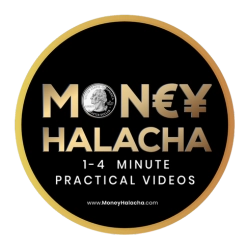May One Benefit From Money Earned Through Bank Interest For Days Of Shabbos or Yom Tov?

All 6 Possible Scenarios Are Covered Below:
1 ) Every Shabbos (and 1-day Yom Tov mid-week for residents of Eretz Yisrael)
2) 2-Day Yom Tov in middle of week, not preceding/following Shabbos
3) Day Yom Tov when one of days is Shabbos
4) Day Yom Tov preceding/following Shabbos (aka “3-Day Yom Tov”)
5) Rosh Hashana in middle of week, not leading into Shabbos
6) Rosh Hashana leading into Shabbos
Note - We are discussing regular interest-bearing bank accounts which pay per calendar day [24-hour weekday periods from 12:00am until 12:00am]. Any CD or more sophisticated investment methods/payouts need to be researched and ruled on separately
Why Is It A Question?
There is a halachic concept on Shabbos called “Schar Shabbos” which refers to the prohibition, of making money on Shabbos. Most Poskim explain the reason for the prohibition is because of its similarity to business-like transactions, which one may not engage in on Shabbos. [see Magen Avraham {siman 30:7} who says that by an extended loan to a goy, if the interest is calculated/paid per days (including Shabbos), it is included in the prohibition]. The question is, does the money earned on days of Shabbos or Yom Tov from our modern-day interest-bearing bank accounts fall under the category of Schar Shabbos as well?
Answer
This question was addressed by HaGaon Rav Moshe Feinstein ztzk”l in his sefer, Igros Moshe [Vol 4 of Orach Chaim Siman 59 {או"ח ח"ד סימן נט} (click here to see actual source page)]. He applies a concept referred to as Havla’ah (lit. “absorbing”). When the payment period consists of Shabbos and non-Shabbos times, we are able to “absorb” the Shabbos time/earnings with the weekday time/earnings and let the person benefit from the money.
So too, in our case of interest-bearing bank accounts on Shabbos, since the banks calculate and pay interest per calendar day [24-hour weekday periods from 12:00am - 12:00am], it comes out that the money paid out by the bank for “Friday” is a combination of earnings for Friday morning/afternoon (not Shabbos) and Friday night (Shabbos). Applying the rules of Havla’ah, one would therefore be allowed to use that money earned for “Friday”. The same goes for the interest earned for “Saturday” which is made up of Shabbos hours and non-Shabbos hours. [Although not addressed by R’ Moshe, it would be the same ruling for 1-day Yom Tov mid-week for residents of Eretz Yisrael]
2-Day Yom Tov During Middle of the Week
Accordingly, it would seem to be problematic when it comes to Yom Tov (outside of Eretz Yisrael) when there are back-to-back days of Yom Tov, which cover a full calendar weekday. For example, Yom Tov from Monday night ending Wednesday night, will fully cover the whole weekday earnings of Tuesday, leaving no non-Yom Tov time for Havla’ah to absorb in. R’ Moshe says that in such a case (mid-week), it would still be permissible, because in reality, Yom Tov is only ONE day (like in Eretz Yisrael), but because of safek, outside of Eretz Yisrael we keep two days as we can’t pinpoint which day is the real day (a complex halacha which we can’t delve into now). With the knowledge that it’s in reality only one day, then although we can’t pinpoint which is the actual day, whichever one it is will only be prohibited from evening to evening of Yom Tov 1 or Yom Tov 2, neither of which on its own covers a full weekday calendar 24-period which the bank pays for, and we can therefore apply the heter of Havla’ah here as well.
2-Day Yom Tov When One Of Days Is Shabbos
However, when Yom Tov starts Thursday night and continues into Shabbos (which is 2nd day Yom Tov), we can no longer blindly, but fully rely on, and say that there’s a guaranteed full calendar day that has Havla’ah hours applicable (for 12am-12am Friday) because it could very well be that the real one day of Yom Tov was Thursday evening - Friday evening. If so, Friday afternoon would be Yom Tov as well and the whole Friday was encompassed by Yom Tov/Shabbos. Therefore, in such a case, the interest earned for the calendar day of Friday would fall under prohibition of Schar Shabbos. The same applies to Yom Tov motzi Shabbos, as it could be Saturday night was indeed covered by the real day of Yom Tov, and bank earnings of Saturday would be prohibited. We can no longer say there was a blind, but guaranteed free, evening-evening period to use for Havla’ah because one of the periods has been confirmed as a prohibited time (Shabbos).
2-Day Yom Tov Preceding/Following Shabbos (aka “3-Day Yom Tov”)
When 2 days of Yom Tov (starting Wed night) are connected to a 3rd day of Shabbos (commonly referred to as “3 day Yom Tov”), only one day’s earnings would be prohibited and not two. It’s just a combination of the last two sections above: For the days of Yom Tov which go from Wednesday evening - Friday evening, we use the blind but guaranteed reliance that only one day was Yom Tov to say that theres no full calendar day and no problem, but that guarantee isn’t applicable to the 48 hours of Thursday evening - Saturday evening because of the attachment to Shabbos, as we said in last section, so only the Friday bank earnings are Schar Shabbos by a “3-day” Yom tov. (Same applies when 2-day Yom Tov follows Shabbos, only Saturday bank earnings would be prohibited)
2 Days of Rosh Hashana During Middle of the Week [+ When Preceding Shabbos]
R’ Moshe brings that (unlike a mid-week 2-day Yom Tov which was permitted), the prohibition should apply for the interest earned for that one full day covered in between both days of Rosh Hashana. This is because for most laws, the 2 days of Rosh Hashana are regarded as one long day (and not that one day is guaranteed not Rosh Hashana). He says therefore that it would be “ra’uy lehachmir” (proper to be stringent) for that one calendar day’s earnings. [According to the above, although not mentioned by R’ Moshe outright, Rosh Hashana directly leading into Shabbos would seemingly result in 2 days of prohibited interest earnings, Thursday and Friday earnings. If so, it would seem that Thursday’s earned amount is under the category of “ra’uy lehachmir” and Friday’s earned amount would be fully prohibited (like the cases of Yom Tov connected to Shabbos)]
What Should One Do With The Money Earned?
R’ Moshe says that the corresponding amount of money should be given to a Tzedaka in a way that they won’t know the donation was his, he won’t receive any benefit from the donation, or receive any recognition from anyone for giving it.
How Much Does It Come Out To?
For practical purposes, the interest earned per day comes out to approximately $0.28 cents per $10,000 in the bank account on that prohibited day for each 1% of interest that the account is earning annually. For example, someone earning 4% annually would give $5.50 for a day of earnings if there was $50,000 in the account that prohibited day.
Please note that these are only GUIDELINES, as the circumstances and laws can vary greatly from case to case. Any nuance or slight change in detail can affect the outcome greatly and should be discussed with a competent Rav or Posek to assess the proper halacha







![Do I Take Maaser From Gifts I Receive? (Cash, Presents, Gift Cards, Bills Paid etc.)[#108]](https://moneyhalacha.b-cdn.net/?seraph_accel_gci=wp-content%2Fuploads%2F2024%2F01%2Fresized-gift-box-with-red-ribbon-2023-11-27-05-15-38-utc-350x250.jpg&n=6YYNjgccdCOS6U3yzizNw&lm=65964E15)
